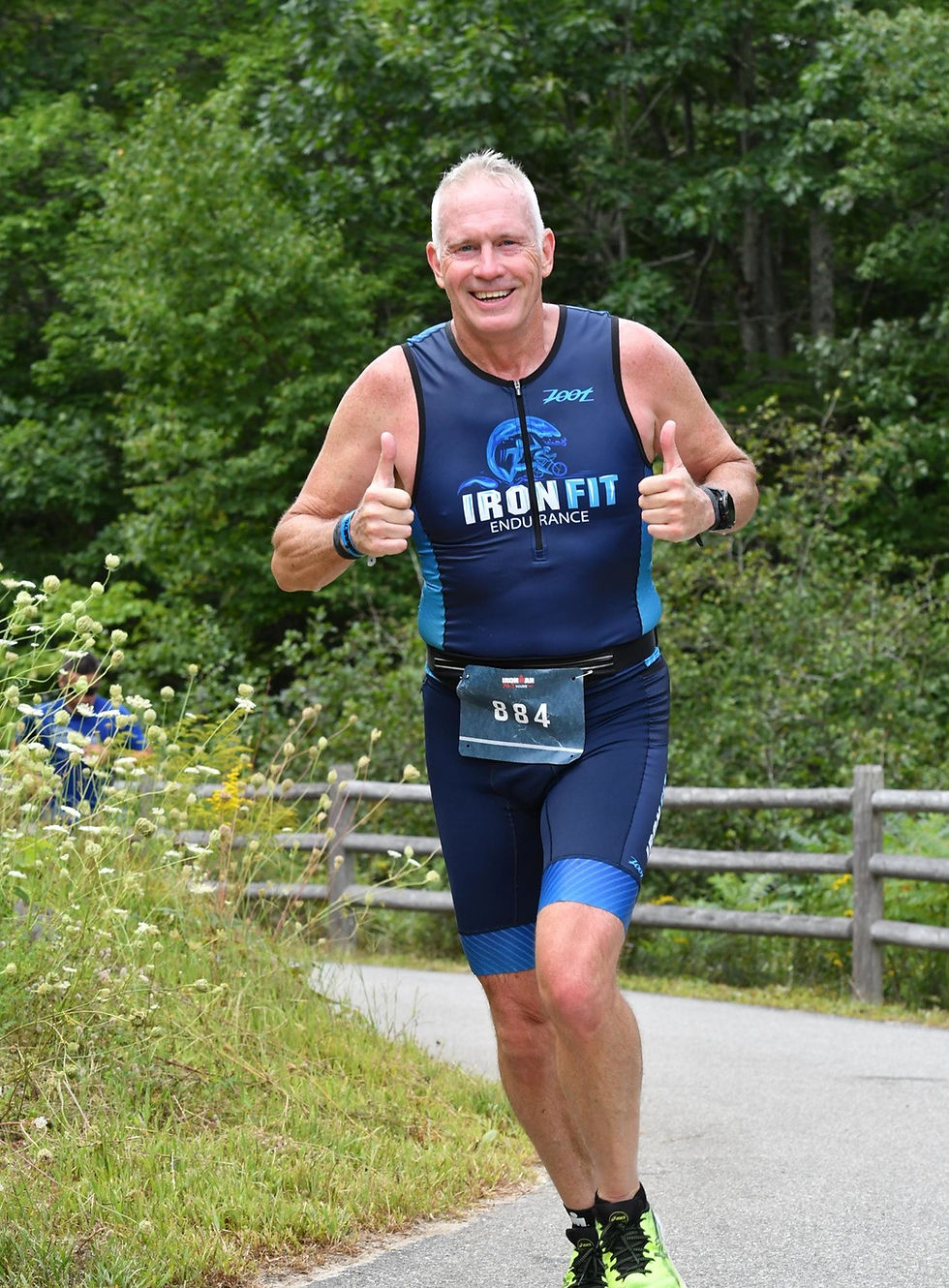Exercise Doesn't Train You for Cancer - It Trains You for Life
- Jeffrey Reynolds
- Nov 8, 2025
- 3 min read

When people learn I’m a two-time cancer survivor and an Ironman triathlete, they often say the same thing: “All that training must have really prepared you for cancer.”
Indeed my fitness was “money in the bank” and it gave me a good starting point for an endurance event that included 27 rounds of radiation and 35 rounds of chemo.
But here’s the truth I learned during those dark months of treatment: cancer doesn’t care how many miles you’ve logged or how fast you can run. Chemotherapy doesn’t negotiate with your VO2 max. Your cancer cells aren’t impressed by your swim times.
Exercise didn’t train me for cancer. It trained me for life.
There’s a crucial difference, and understanding it changed everything for me.
Cancer limited my ability to train. I couldn’t run far or fast. Some days, I couldn’t walk up the five flights to my office without stopping to rest. The athlete I’d worked so hard to become felt like a stranger. If fitness was supposed to prepare me for this fight, where was it when I needed it most?
But here’s what I discovered: the lessons from training? They were everywhere.
The days at 5 AM when I’d rather stay in bed but lace up my shoes anyway? That taught me how to show up when showing up feels impossible. Every longish run when my mind screamed to quit at mile six but I pushed through to ten? That taught me that discomfort is temporary and I’m stronger than I think. Every race where nothing went according to plan and I had to improvise, adapt, and keep moving forward? That taught me resilience isn’t about avoiding the hard stuff - it’s about moving through it.
These weren’t physical preparations. They were mental and emotional rehearsals for being human during the hardest moments of my life.
Exercise trains you to embrace discomfort without letting it define you. It teaches you that progress isn’t linear; some days you’re strong, some days you struggle, and both are okay. It shows you that you can do hard things, even when you don’t feel ready. It proves that the discipline to do what needs doing, especially when you don’t feel like it, is a skill you can develop and refine.
Most importantly, exercise teaches you that forward motion - any forward motion - matters.
During treatment, I couldn’t swim, bike, or run regularly. But I could move. Some days that meant walking around the block. Other days, it meant jumping on the Peloton for 15 minutes. The training hadn’t made me superhuman. It had taught me that every mile matters, even when a mile is actually just a few steps.
This is why I keep training now, 20 months post-treatment. Not because I’m preparing for another health crisis - god help cancer if it shows up again. I train because life keeps showing up with challenges I didn’t see coming. Professional setbacks. Personal losses. The daily grind that wears us all down. The unexpected moments that knock us sideways.
Exercise doesn’t prevent any of that. But it teaches you how to face all of it.
It trains you to be present in discomfort. To start before you feel ready and are still unsure. To keep moving when stopping seems easier. To find strength you didn’t know you had. To show up for yourself, consistently, even when no one’s watching and nothing dramatic is at stake.
That’s not training for cancer. That’s training for life - the mundane, beautiful, challenging, ordinary, extraordinary experience of being alive.
So when someone tells me they want to start exercising but they’re waiting until they feel more motivated, more prepared, more ready, I understand. But I also call BS because I know the truth: life won’t wait for you to feel ready. The training isn’t about preparing for some future catastrophe. It’s about showing up for today, and tomorrow, and the day after that.
It’s about showing up for you.
If you loved this post, you'll love my book, Every Mile Matters: Turning Triathlon Training Into Cancer Triumph.










Comments